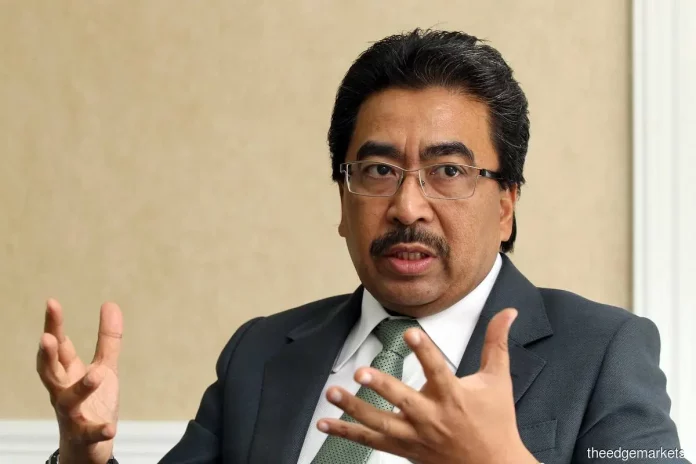by Datuk Seri Johari Abdul Ghani is the Minister of Plantation and Commodities in Malaysia
For many years, the cadence of UN climate summits was predictable. Rich countries would push for strict targets, ambitious transitions, and headline-grabbing deadlines.
Developing countries would balk at being asked to commit large sums of money – and the opportunity cost of economic development – to meet those targets. Many openly questioned why developing nations had a moral responsibility to solve a problem largely created by the West’s 150 years of industrialised emissions.
Today, many of those developing nations – including Malaysia, where I was born and raised – have successfully advanced. Economic development has brought greater prosperity and comfort, which in turn has changed the narrative on sustainable development.
Malaysia now has ambitious commitments to Net Zero targets and many associated environmental goals. We will maintain a minimum of 50 per cent of our land as forest area (the global average is 31 per cent); new mandatory certification laws have been introduced such as the Malaysian Sustainable Palm Oil (MSPO) standard; and a serious commitment is in place for an energy transition plan to reach Net Zero emissions by 2050.
Malaysia is committed to these targets – but we are a trading nation in a globalised world. For both Malaysia, and the many countries in a similar position, our success will also be determined by the actions of our trading partners, including the EU. Three factors will be particularly important.
First, economic development. People in Malaysia rightly demand security and prosperity for their families and communities: for many people, those advances are relatively new, and relatively fragile.
We must ensure that economic targets are met as well as environmental ones, so Malaysians can see that climate change commitments will not come at the expense of social wellbeing or economic opportunity.
Europe has a huge role to play in this question. New EU rules, specifically the EU Deforestation Regulation (EUDR) introduce strong new requirements for environmental traceability for crops such as palm oil. Malaysia’s MSPO certification standard is mandatory for all farmers, which means we are well-positioned to comply with EUDR.
However, more than 450,000 small farmers in Malaysia cultivate oil palm. They do not have the technological sophistication demanded by EU rules, and need more time and flexibility.
If the EU wishes to bring developing countries with them on the Net Zero journey, it should not deny small farmers the ability to put food on the table for their families and communities. Second, respect and recognition for progress.
Malaysia’s sustainable palm oil standard, MSPO, is a world-leading mandatory commitment to sustainable agriculture. Malaysia joins the EU in a shared commitment to driving these sustainable principles.
The EU could support Malaysia by recognising the value that MSPO brings, as well as the value that Malaysia provides to the world by protecting 50 per cent of land as a permanent forest area. This commitment means protecting tropical ecosystems, biodiversity, and CO2sequestration.
These efforts are worthy of support and public recognition.
Third, no more double standards. The WTO recently ruled that the EU’s Delegated Act, as part of the Renewable Energy Directive II (RED II), included ‘arbitrary and unjustifiable’ discrimination against palm oil.
This approach was too common in the past, and it is not constructive. Instead, Malaysia expects that all oilseeds be treated equally on the same level playing field: palm oil should not be singled out, and any sustainability criteria should be fair and applicable to all.
After all, palm oil is the most productive oilseed crop of all: it currently yields an average of 3.31 metric tonnes per hectare (MT/ha) compared to soybean (0.43 MT/ha), rapeseed (0.78 MT/ha), and sunflower (0.76 MT/ha).
This means it uses less land, less fertiliser and fewer other inputs. In a fair market, Malaysia’s palm oil competes strongly, offering low prices and high quality to our global customers and consumers.
The Malaysian Government is committed to our ambitious climate targets. It is in our vital interests to support the global protection of the environment.
But fairness matters too, and the EU should commit to supporting partner countries through this difficult transition to benefit not only the citizens of Malaysia and the 27 countries in the EU, but the entire global population.









